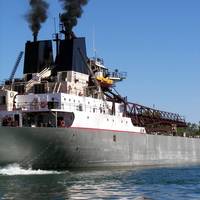
IMO
There are numerous organizations with the abbreviation "IMO," but assuming you are referring to the International Maritime Organization (IMO), here's a detailed overview:
International Maritime Organization (IMO)
The International Maritime Organization, often abbreviated as IMO, is a specialized agency of the United Nations responsible for regulating shipping. The IMO was established in 1948 and came into full force in 1959. Its headquarters are located in London, United Kingdom.
Mission and Objectives
The IMO's primary mission is to create a regulatory framework for the shipping industry that is fair, effective, universally adopted, and universally implemented. The organization focuses on several key objectives:
- Safety and Security: Establishing international safety regulations to ensure the security of life at sea.
- Environmental Protection: Setting standards to minimize the environmental impact of shipping activities.
- Legal Matters: Developing international maritime law to ensure efficient and equitable shipping practices.
- Technical Cooperation: Providing technical assistance and capacity-building programs, especially for developing countries.
- Efficiency and Facilitation: Streamlining procedures for international shipping to make maritime transport more efficient and cost-effective.
Key Conventions and Regulations
The IMO is known for several important international treaties and conventions, such as:
- SOLAS (Safety of Life at Sea): One of the most important treaties focusing on ship safety.
- MARPOL (Marine Pollution): International regulations aimed at preventing pollution from ships.
- COLREGs (Collision Regulations): Regulations for preventing collisions at sea.
- STCW (Standards of Training, Certification, and Watchkeeping for Seafarers): Setting qualification standards for seafarers.
- IMDG Code (International Maritime Dangerous Goods Code): Regulations for the safe transport of hazardous materials and dangerous goods.
Structure and Governance
The IMO consists of an Assembly, a Council, and five main Committees:
- Assembly: The highest governing body, composed of all Member States, which meets every two years.
- Council: Acts as the executive organ and is responsible for ensuring the functioning of the IMO.
- Committees:
- Maritime Safety Committee (MSC)
- Marine Environment Protection Committee (MEPC)
- Legal Committee
- Technical Cooperation Committee
- Facilitation Committee
Membership
The IMO has a wide membership, with around 174 Member States and three Associate Members as of 2023. These members are primarily countries with maritime interests.
Achievements and Impact
The IMO has made significant contributions to maritime safety and environmental protection:
- Reduction in Maritime Accidents: Implementation of rigorous safety standards has led to a marked decrease in maritime accidents.
- Mitigating Environmental Impact: Introduction of cleaner fuel regulations and restrictions on emissions has reduced the environmental impact of the maritime industry.
- Global Standards: The establishment of universally recognized standards has leveled the playing field, fostering fair competition and consistency across the global maritime industry.
If you meant another organization by "IMO company," please provide more context, and I’d be happy to share information accordingly.
- Phone: + 44 (0)20 7735 7611
- Web: https://www.imo.org/
IMO News
WMU Calls On Communities To Protect Seafarers’ Rights

As the International Maritime Organization’s (IMO) apex institution for maritime and ocean education, the World Maritime University (WMU) adds its voice to widespread concerns over the serious effects of the COVID-19 pandemic on the health, wellbeing, and safety of seafarers.As countries around the world retreat to fight the pandemic, travel restrictions and financial losses are hitting shipping and other ocean-related industries hard.
BIO SEA BWTS Approved by USCG and IMO

BIO-UV Group has received IMO & USCG type approval for its next generation low flow rate ballast water treatment system range.The BIO-SEA L Easy-to-Fit system had to undergo new type approval testing as it incorporates a completely new UV-reactor, designed to meet market demand from the luxury yacht, expedition cruise and offshore vessel segments, where ballast water pump flow rate capacities are often under 100m3/h.Benoît Gillmann…
COVID-19: IMO Urges No Unnecessary Delays To Ships
The International Maritime Organization (IMO) has sent a letter to its member states amid the outbreak of the novel coronavirus asking them to undertake all possible…
Finland Accedes to Cape Town Agreement
Finland has become the latest State to become Party to the Cape Town Agreement on fishing vessel safety, said International Maritime Organization (IMO).The Agreement…
IMO Spotlight on Empowering Maritime Women
International Maritime Organization (IMO) headquarters in London has hosted yesterday 19 (February 19) a a major symposium on empowering maritime women.Removing…
IMO's Women in Port Management Course
To encourage More women are joining the maritime ranks in a variety of professions within the industry and with a view to continuing the momentum to empower women in the maritime community…
SDC 7 to Finalize Ship Stability Criteria
International Maritime Organization (IMO) 's Sub-Committee on Ship Design and Construction (SDC 7), meeting at IMO Headquarters (3-7 February), is expected to finalize…
SOLAS Amendments from 1 January 2020
A set of important amendments to the International Convention for the Safety of Life at Sea (SOLAS) and various codes mandatory under the Convention enter into force on 1 January 2020…
Asia Boosts IMO Technical Cooperation
The International Maritime Organization (IMO), Thailand’s Ministry of Transport and the United Nations Economic and Social Commission for Asia (UNESCAP) have recently…
Navigating the Rough Waters of Marine Certification
The marine industry brings its own unique set of challenges.With the ‘All Subsea Factory’ market trend moving offshore exploration and production equipment for oil and gas to the seabed…
Fuel Market Calm ahead of IMO Changeover

Fears about a shortage of diesel and other middle distillates stemming from new marine pollution regulations have receded, with distillate premiums falling to some of the lowest levels for two years.From the start of 2020, ocean-going ships will be required to use low-sulphur fuels or employ exhaust gas cleaning systems, known has scrubbers, under pollution control rules approved by the International…
India Accedes to Ship Recycling Convention
India, one of the world's five major ship recycling countries, has acceded to the IMO Hong Kong Convention, the treaty that will set global standards for safe and…
Training for L. American Maritime Leaders
A regional workshop organized by International Maritime Organization (IMO) has provided senior maritime administration officials in Latin America with the latest…
Joseph Angelo Awarded Global Maritime Prize
The prestigious International Maritime Prize for 2018 has been presented to Joseph J. Angelo, a former United States Coast Guard (USCG) and International Association…
IMO Backs Polar Waters Navigation Training
Well-trained seafarers are essential to safe ship navigation in Polar waters and International Maritime Organization (IMO) has been playing its part with a training course for maritime instructors…
IMO Supports Women in Port Management
What do successful, well-run ports and female empowerment have in common? Both can make a significant contribution to sustainable economic development.International…
IMO Traning on Maritime Policy
An effective maritime transport system is an important foundation for sustainable development. But it needs proper planning and a solid policy foundation.So, as…
SAR Traning for African Women
Training for African women working in search and rescue (SAR) operations underwent at the Maritime Rescue Coordination Center in Rabat, Morocco (13-15 November).Thirteen…
IMO Training on Fouling
Mediterranean countries underwent International Maritime Organization (IMO) training on the impacts of anti-fouling systems and ships’ biofouling on the marine environment at a workshop in Valletta…
Norway Supports GreenVoyage-2050 Project
Partnerships and innovations are essential to combat climate change through reductions in GHG emissions. Norway has provided an additional NOK 40,000,000 (US$4.3.








